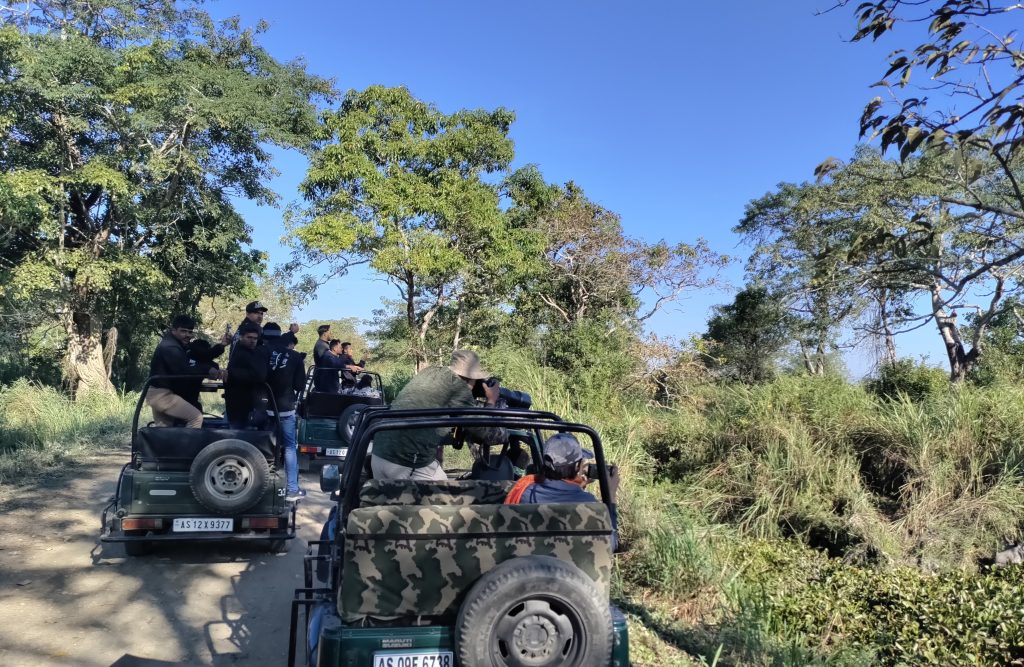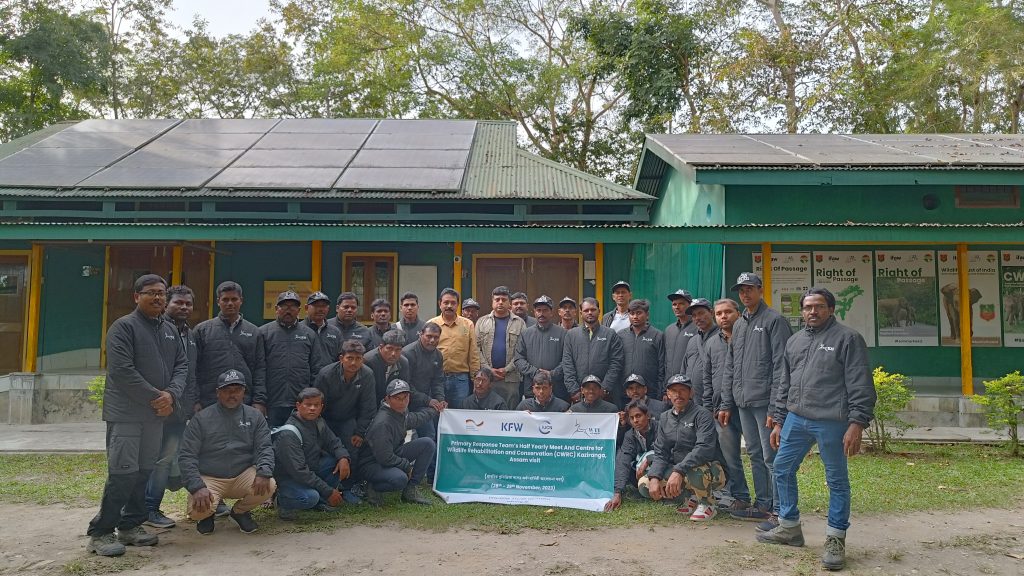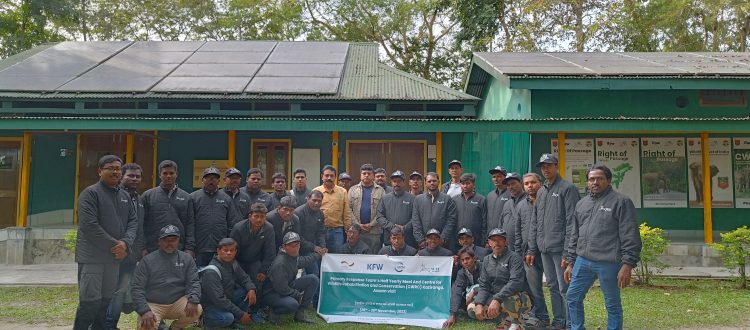WTI organises exposure visit for PRT volunteers from Sundarbans to Kaziranga, Assam
Wildlife conservation is a shared responsibility that extends beyond the purview of governmental and non-governmental entities. At the heart of successful conservation efforts lies the crucial role played by local communities. These communities, often residing close to wildlife habitats, possess a unique knowledge of the land and its inhabitants.
Building on the advantages of local knowledge and community involvement, WTI has been establishing Primary Response Teams (PRT) across its project landscapes. PRT members are community representatives from villages who play the crucial role as the first responders at the village level during any wildlife emergencies. Additionally, they assist the Forest Department in rescue and rehabilitation activities.

Sundarbans PRT team on a safari in Kaziranga NP, Assam | Photograph by Prosenjit Sheel/WTI
WTI’s Sundarban Tiger Project recently conducted its Primary Response Team (PRT) half-yearly meeting in Kaziranga, Assam to enrich the knowledge and skills of PRT members. This exposure visit aimed to provide them with opportunities to explore and gain insights into new aspects of wildlife conservation.
The team visited the IFAW-WTI Centre for Wildlife Rehabilitation and Conservation (CWRC) for an interactive session with our staff to learn about the centre’s operations. The CWRC staff provided insights into the management and care of wild animals. From the rescue of injured or orphaned animals to their rehabilitation and eventual release, the team had the first-hand experience on the meticulous care and attention required for successful wildlife conservation, including veterinary care, nutritional needs, and the psychological aspects of rehabilitation.
The team of 32 PRT members from Sundarban Biosphere Reserve (SBR) gained valuable insights into the diverse species of the landscape, their behaviour, and the delicate balance of ecosystems. This visit provided them with an opportunity to comprehend the complexities of human-wildlife interactions and learn how sustainable tourism in the form of homestays is promoting tolerance towards elephants among the Karbi communities. The team was accommodated in the homestays in the Karbi Village close to Kohora Centre during their visit.

Sundarban PRT at CWRC, Kaziranga, Assam | Photograph by Samrat Paul/WTI
They were appreciative of the eco-friendly tourism which is being well managed by the Karbi Community people, and responsible resource management that supports conservation goals where this knowledge empowers communities to adopt practices that align with the principles of sustainability.
We believe that this visit would spark a sense of responsibility for the local towards their own ecosystems. Empowering local communities with the knowledge and experience of environmental stewardship opens up a new spectrum of sustainable tourism and the advantages of coexistence with wildlife.









